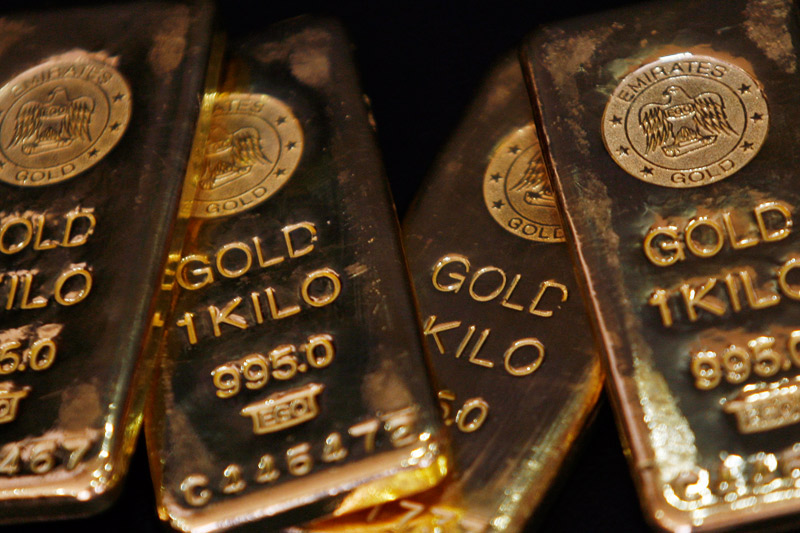Investing.com - Gold prices tread water on Tuesday in Asia as investors squared positions ahead of a Federal Reserve review of monetary policy this week that could finally pull a trigger on higher rates.
On the Comex division of the New York Mercantile Exchange, gold for December delivery traded at $1,107.70, up 0.01%, while silver for December delivery fell 0.03% to $14.375 an ounce.
Copper for December delivery gained 0.29% to $2.417 a pound.
Overnight, gold futures inched up on Monday amid a relatively flat dollar, as the timing of an interest rate hike by the Federal Reserve and the longstanding Chinese equities crisis remained in focus.
China is the world's largest producer of gold and the second-largest consumer behind India.
Investors await the Federal Open Market Committee's (FOMC) highly-anticipated two-day meeting starting on Wednesday, where the U.S. central bank could raise Federal Funds Rate for the first time in nearly a decade. The Fed's benchmark rate, which banks use to lend to other institutions on overnight loans, has remained at its current level between zero and 0.25% since December, 2008.
In recent months, Fed chair Janet Yellen has indicated that the FOMC will take a "data-driven approach," to policy normalization, placing a close eye on the strength of the economy and labor markets, as it weighs the decision. In August, U.S. nonfarm payrolls increased by 173,000, below consensus estimates of a 223,000 gain. The unemployment rate, however, fell to 5.1%, its lowest level since April, 2008, prior to the start of the Financial Crisis.
Gold, which is not attached to dividends or interest rates, struggles to compete with high-yield bearing assets in periods of rising rates.
The Fed also reportedly remains concerned that weakness in the Chinese economy could have a spillover effect onto the global markets at large, possibly forcing it to keep the Fed Funds Rate at its current zero-bound level. Over the weekend, the Chinese government released disappointing data, illustrating that factory production and fixed-asset investment last month were both weaker than expected. The latest data provide further indications that the world's second-largest economy might fail to meet its annual growth target expectation of 7% for 2015.
